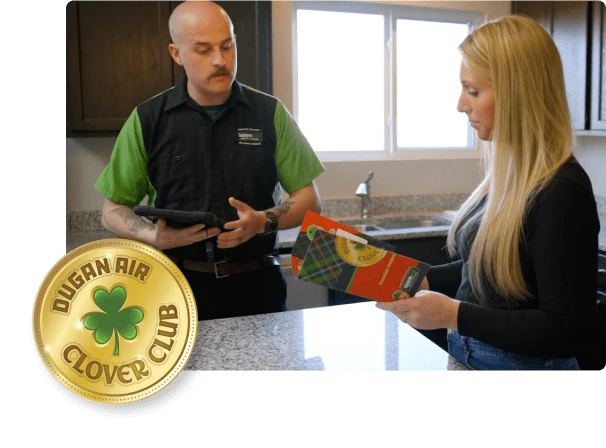Is It Still Legal to Recharge My Air Conditioning Unit With Freon Gas?
Perhaps no other compound used in the HVAC industry has received as much mainstream press as Freon. This brand-name halocarbon was long used as the standard coolant in a wide variety of both air conditioning units and kitchen refrigerators. Government regulators started to ban many of the ingredients used to make Freon as early as 1987, owing to the fact that they contributed to the hole in the ozone layer. The state of Indiana also has its own set of regulations leading many people to believe that all forms of Freon are illegal. However, these bans impact only specific products, and many consumers, as well as HVAC technicians use the word Freon to refer to a wide variety of chemicals.
What the Word Freon Really Means
Though it might sound like some kind of technical term, Freon is actually a registered trademark. It’s a brand name that’s been applied to several gases manufactured by companies connected to Kinetic Chemicals and now Chemours. Many people use the term to refer to just about every refrigerant on the market. Since there are a few legal refrigerants still on the market, it’s obviously acceptable for HVAC technicians to use these when recharging an AC unit.
Older types of Freon were phased out due to ozone depletion regulation, though existing supplies continued in use until they were exhausted. Certain newer types of Freon, such as R-22, are now being phased out since they’re potent greenhouse gases, but there’s a good chance that some of these may remain in use for some time. There’s currently a great deal of confusion in the industry because of the misuse of the word Freon as well as the changing regulatory landscape. Compounding this is the fact that there are actually some cases where Freon may have worked better than present-day refrigerants.
Benefits of Using Freon
Old-school Freon was arguably energy efficient and had a tendency to get at least somewhat colder than many of the gases currently in use. Its contribution to the greenhouse effect was the main problem. As stockpiles ran out, some technicians were actually able to recover Freon from existing AC units that were getting recycled. Therefore, it does have some reuse value in spite of the fact that there are serious environmental considerations associated with it. Recovered Freon is normally legal in specific applications since it’s not freshly manufactured.
Some newer gases are flammable, which has made them completely unacceptable for use in corrosive environments. They also pose concerns for homeowners, which is why conventional Freon stuck around in the residential HVAC market much longer than in almost any other application. Molecules found in Freon gas are extremely stable, which is both why it doesn’t catch fire as easily and why it has a tendency to stay around in the upper atmosphere for so long.
Modern Alternatives to Freon
An increasingly large percentage of AC units are getting recharged with various types of isobutane-based chemicals, which are derived from propane. These are relatively high in performance and don’t suffer from any regulatory issues, but some critics have questioned their safety. Some units now call for a new type of gas called R-1234yf, which is much less flammable than anything loaded with isobutane. Carbon dioxide might be the most promising refrigerant, however, since it can be easily manufactured without too much harm to the environment, and it’s not flammable. Considering that human beings exhale this gas, we don’t have to worry about its toxicity either.
Regulatory bodies don’t have many laws regarding the application of CO2 gas, so homeowners won’t have to worry about the legality of acquiring it. They’ll be able to call up their local HVAC professional and have them recharge their AC unit with a safe gas. Until this technology becomes commonplace, however, it’s likely that some forms of Freon gas will remain legal in specific applications for the next few years. The fact remains, though, that it is no longer manufactured.
Reliably Recharging an AC Unit
Environmentally destructive refrigerants should be phased out completely in the early 2030s, which means many homeowners will be stuck asking difficult regulatory questions until that time. Never hesitate to reach out to our team at Dugan Air. Our professional service representatives only use registered industry-standard refrigerant gases that are in compliance with the current regulatory framework. That means you won’t have to worry about whether or not the gas you’re using is legal. If you’re located anywhere in Franklin, IN or the surrounding area, you can count on us for all your heating and cooling needs, including installation, repair, and maintenance. Call Dugan Air today.

HOW CAN WE HELP?
Request Service second home page


Join Our Premium Clover Club
Take Advantage of Our HVAC Maintenance Plan
Have you ever wondered if a service plan is really the pot of gold it’s rumored to be? Trust us — ours is! Signing up for a Premium Clover Club membership includes the following perks:
- Annual heating and cooling checks
- Discounts on repairs and parts
- Waived service call and overtime fees
- Priority scheduling
- Peace of mind
 Upgrade Today: $2,009 Buy-Back Credit for Your Old AC & Furnace! Financing Available!
Upgrade Today: $2,009 Buy-Back Credit for Your Old AC & Furnace! Financing Available!





